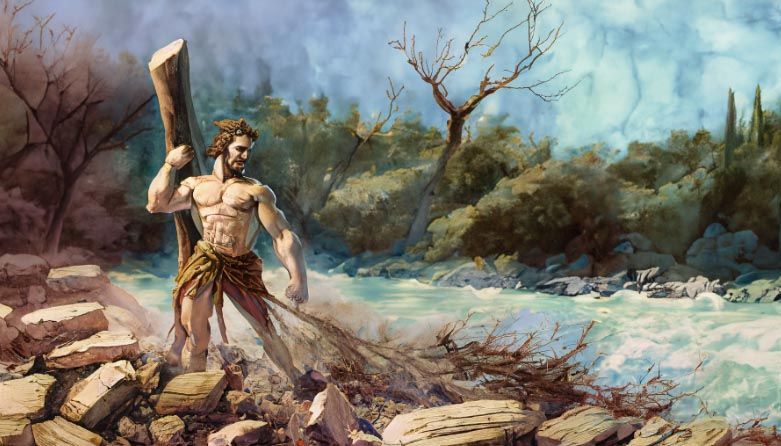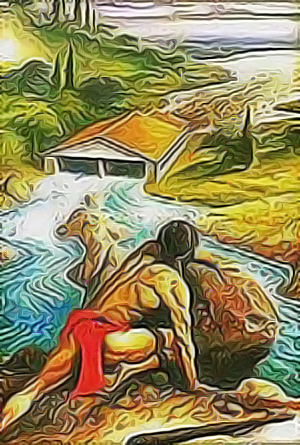Hercules and the Stables of Augeas
The Mythical Deconstruction of the Impossible Task in Greek Mythology
In Elis, a region on the western coast of the Peloponnese, there was King Augeas, a prominent ruler. Legend had it that Augeas was the son of Helios, with eyes that shone like the rays of the morning sun. Augeas had large herds of cattle, which he placed in a spacious stable every night. Over time, the stable became filled with manure.
Eurystheus explained to Hercules:
"You must go to King Augeas and perform your sixth labor there."
Hercules asked, "Is there some beast like a lion or a dreadful serpent that threatens the inhabitants of Elis and I must kill it?"

Eurystheus replied,
"No, it is not a beast, Hercules. You will not need to fight during your stay there. However, do not think that your task is easy. Augeas wants you to clean the stable of manure, and you must do it in just one day. If you fail, you will have to serve him and clean the stable for the rest of your life."
Hercules believed that King Augeas' stable would be like the ordinary stables he knew. However, when he arrived there, he realized the reality. Augeas' stable was indescribably large, filled with manure that even if he worked without stopping for a whole year, he would not be able to clean it. When Augeas asked him if he could clean it in a day, Hercules looked at the heaps of manure and thought. Then, he proposed:
"Alright, I agree to clean your stable in one day, but only if you promise to give me one-tenth of your herds," Hercules proposed.
Augeas agreed, "I agree. I am certain you cannot achieve this feat. But if you fail, you will be my servant for the rest of your life."
Hercules decided, "I will start tomorrow morning, and by evening your stable will be completely clean."
In the morning, Hercules woke up and began to implement his clever plan. Only with his ingenuity could he accomplish this feat. He noted that Augeas' stable was situated between two large rivers, the Alpheus and the Peneus. Starting to dig, he opened a wide trench from the Alpheus and brought it to one door of the stable. He did the same with the Peneus, bringing the second trench to another door of the stable. The rushing waters of the two rivers converged inside the stable and, in a few hours, washed away the manure. Thus, even before the Sun set, King Augeas could not believe his eyes. He found Hercules waiting for him, smiling, in a clean stable, without a trace of manure!
"As you can see," he said, "I cleaned your stable in less than a day."
"But... how did you manage it?"

He didn't need to ask because he saw how Hercules accomplished this amazing feat.
"We had a bet," Hercules reminded him.
Augeas was enraged. He had lost the bet, and this infuriated him greatly. He refused to pay, and so Hercules waged war against him and killed him. Not only him but also all his sons except for Phyleus, who had supported Hercules.
During this campaign, he also killed the two Moliones, twin monsters who shared a single body with two heads. Then, he continued with his campaign to Lacedaemon, where he punished the twelve sons of Hippocoon and restored Tyndareus to the throne.
During his stay in Lacedaemon, he met the daughter of the king of Tegea, Aleus. Hercules fell in love with the daughter and made her the mother of Telephus. At the same time, he killed the centaur Eurytion, who was claiming Mnesimache, the daughter of Dexamenus, the king of Olenus.